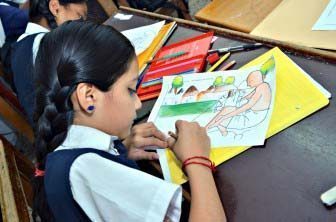
Qatar’s education authority will ease some of the restrictions governing private school enrollment, which should make it easier for students to join schools mid-way through the academic year and move up or down a year with their parents’ permission.
The Supreme Education Council (SEC) yesterday announced the new regulations, which reverse some of the strict measures introduced earlier this academic year.
For the past several months, students coming from abroad could not easily enroll in a private school after Nov. 9, and all new pupils in Qatar were required to have two years’ worth of reports from their previous schools, which had to be attested by the SEC’s Evaluation Institute.
This body would issue a certificate of equivalency, which would dictate the year group into which the child was permitted to enroll.
However, these directives caused a headache for many parents, some of whom were unable to get a school place for their children if they arrived in the country after the cut-off starting date.
The strict school-year policy was also criticized for not taking into account very bright children who would benefit from being moved up a year, or children who required additional help and needed to be placed into a lower year group.
New regulations
According to the latest guidelines, which were announced by the SEC’s assistant director for Private Schools Affairs Ayesha al-Hashemi, children will now be allowed to enroll in a school even if it is the middle of the academic year.
The SEC has set a new “registration window” from March 2 to Oct. 15, 2015, for students to sign up to start at new schools. Those wishing to join outside of this period need to apply to the SEC for permission, according to local media reports.

The education authority has also removed the equivalency certificate, so parents in Qatar no longer need to get permission to move their children between private schools, if there are spaces at the school in question.
It also means that families newly arriving to Qatar only need to provide a report from their child’s previous school. Under the new directive, the report does not need to be attested by the SEC.
However, Qatari students moving from a private school to an independent (state) school, are required to have their reports authenticated by the SEC’s Attestation and Equivalency Unit to prove that they are moving into the correct year group, the Peninsula reports.
Previously strict rules about the year group into which children are placed also appear to have been relaxed.
The SEC said it would give guidelines for appropriate year groups according to the child’s age through an equivalency table of international education systems for the 2015-16 academic year.
Children who would benefit from moving up or down a school year would be permitted to do so, as long as parents sign a consent form. The school must also inform the SEC’s Private School Office and provide evidence to support its decision.
However, the maximum age difference between students of the same class should not be more than two years, the Gulf Times reports.
Schools’ response
The new guidelines have been welcomed by some private schools in Qatar as a show of flexibility by the SEC. In a statement to Doha News, Niall Brennan, Director of Park House English School, said:
“We are delighted to read of the direction given by the Private School’s Office with regards (to) registering children at schools. This new guidance is a result of a detailed collaborative process between the SEC and Private Schools and clearly demonstrates that there is a constructive and productive relationship ensuring that best practice drives education here in Qatar.
With a heavily expatriate presence in Qatar and children from literally hundreds of curriculums, countries and educational disciplines it is essential that we have a flexible system that guides schools whilst ensuring that children get the very best educational experience and parents are included and consulted along the way.”
However, one area that may continue to cause some difficulty for new Qatar residents concerns the existing rules on visas. Children with visas valid for less than a year will still not be permitted to enroll in private schools, local newspapers report.
This would mean that visitors on six-month family visas or one-month renewable tourist visas would, in theory, not be able to get a private school place for their children.
As many new residents must now provide six months worth of bank statements before they are able to sponsor their family, and thus secure Residence Permits (RPs) for them, this is another potential hurdle for children who have recently moved to Qatar.
The SEC has also said it would enforce rules on schools’ designated capacity, and they will be monitored to ensure they don’t accept more pupils than they are permitted to.
New schools
As parents report ongoing pressure for places in Qatar schools, the SEC said it has plans to open dozens of new schools in the coming academic year.

Al-Hashemi said that 91 new private schools have been given initial approval to open by September this year, although the number which will actually open their doors then is likely to be lower.
There will also be six new Indian schools, with some possibly opening at the start of the Indian academic year next month, she added.
Last month, the SEC issued a statement saying 14 Indian schools and kindergartens would be open in the next academic year.
While there are 29 schools and kindergartens in Qatar serving the Indian community, parents have previously voiced their frustration that there are not enough school places to meet demand.
Qatar’s public works authority Ashghal told Doha News last month that it is constructing a total of 33 new schools and kindergartens ahead of September. This should create space for 11,050 school-age students as well as 1,440 children attending kindergarten, although this is thought to be a mix of private and independent schools.
Thoughts?







